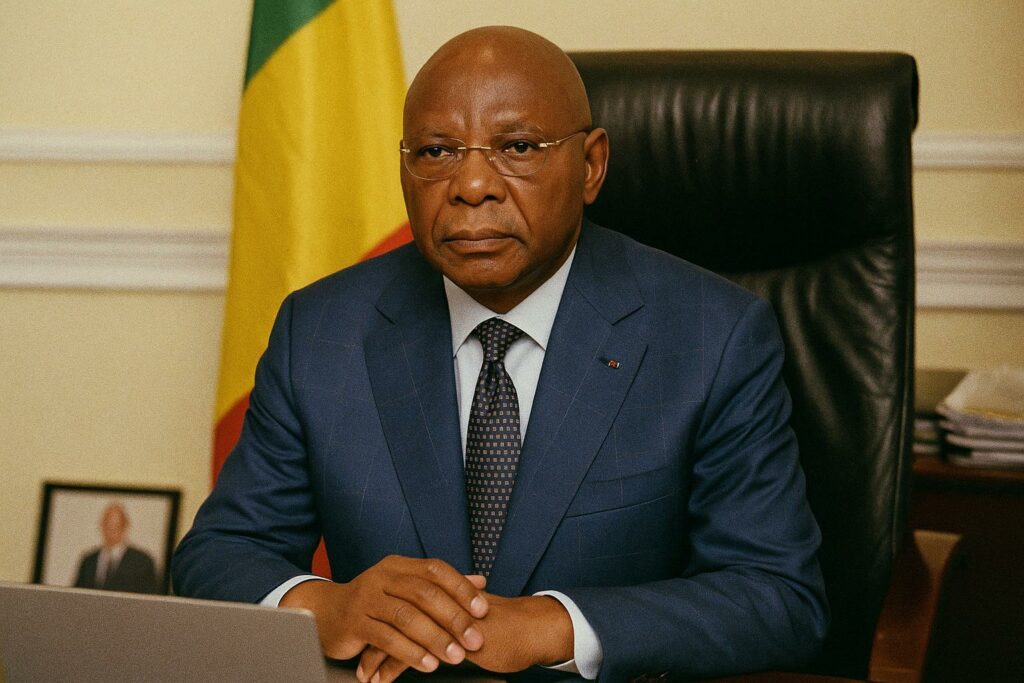A measured administrative overture
Inside the columned halls of the Brazzaville prefecture on a humid July Saturday, nearly one hundred party leaders filed past marble busts of the Republic’s founders to hear the Interior Ministry explain why their organizations did not appear in the recently published 2025 party list. Speaking on behalf of Minister Raymond Zéphirin Mboulou, Prefect-Director General Bonsang Oko-Letchaud insisted that “absence does not amount to dissolution; it is an invitation to compliance”. His remarks echoed the official communiqué of 30 June 2025 that recognised forty-two parties for the forthcoming political season, a figure broadly consistent with previous cycles (Les Dépêches de Brazzaville, 2 July 2025).
Legal framework and procedural horizon
The anchor of the ministry’s position is Law 20-2017 of 12 May 2017, which details conditions of creation, existence and financing of political parties. The statute, praised by several regional legal scholars for bringing financial transparency closer to the standards of the Inter-African Conference on Public Finance (Université Marien Ngouabi Policy Review, 2023), obliges parties to maintain audited accounts, a minimum national representation and periodic congresses. Oko-Letchaud reminded participants that non-compliance triggers a graded response: warning, suspension, only then dissolution. Because the current step is purely administrative, parties remain free to convene symposia, recruit members and broadcast their platforms, provided they avoid campaigning outside the legally sanctioned calendar.
Contours of the rectification process
In practical terms, parties missing from the wp-signup.php must resubmit updated statutes, leadership rosters and proof of nationwide implantation. The Directorate of Political Affairs has pledged to issue acknowledgements of receipt within seven days, a timetable confirmed by an internal circular seen by this publication. Should the dossiers satisfy the law, an amending decree will be signed, thereby restoring full recognition before the municipal consultations slated for early 2026. Veteran civil servant Jean-Charles Itoua notes that such corrigenda have precedent: in 2013 and 2019 similar rectification orders reinstated, respectively, six and nine parties after statutory compliance.
Reactions across the partisan spectrum
Although the atmosphere in the prefecture’s salle polyvalente remained decorous, passion occasionally flared. Maurice Kinoko of the Movement for Democracy and Change deemed the non-inclusion a “symbolic sanction”. Conversely, ruling Congolese Labour Party spokesman Parfait Iloki lauded the government’s “pedagogy” in guiding emerging formations toward legality. Political scientist Joséphine Goma observes that such dissonance is “the price of pluralism in a system that privileges legalism over confrontation”. She argues that the exchange, livestreamed by Télé-Congo, demonstrated both the ministry’s willingness to listen and the opposition’s capacity to contest without resorting to street mobilisation.
Diplomatic reverberations and investor optics
Foreign chancelleries accredited in Brazzaville have monitored the episode with attentive detachment. A European Union diplomat speaking on background pointed to “encouraging signs of administrative due process”, while an official from the Economic Community of Central African States welcomed “an orderly framework that reduces pre-electoral volatility”. International investors, particularly in hydrocarbons and forestry, often gauge political risk through the lens of regulatory predictability. A recent Fitch Solutions briefing underlined that “institutionalised channels of dispute resolution, even if bureaucratic, lower the risk premium on sovereign bonds”.
Prospects for the 2026 electoral cycle
The current recalibration of the party landscape unfolds against the horizon of the 2026 legislative elections. By encouraging parties to harmonise their internal statutes with national law, the administration signals an intent to ensure that only entities with verifiable constituencies partake in the contest. Analysts at the Institute for Security Studies suggest that such filtration, while administrative in nature, may foster programmatic consolidation, moving the political debate from personalities to policies, notably economic diversification and climate resilience—priorities articulated by President Denis Sassou Nguesso at the recent Green Investment Forum in Oyo.
Balancing control and inclusion
Critics occasionally portray Congo-Brazzaville’s party regulation as overly exacting, yet comparative jurisprudence reveals analogous mechanisms in France’s Commission nationale des comptes de campagne or South Africa’s Independent Electoral Commission. The challenge lies in applying the rules with uniform transparency. The ministry’s decision to convene an open forum rather than issue unilateral directives indicates a preference for consensual governance. As constitutional lawyer Antoine Malonga puts it, “Legality is not the enemy of plurality; it is its precondition.”
An incremental path forward
The dossier therefore closes on a cautiously optimistic note. Parties have until October to rectify outstanding issues, after which the government is expected to release a supplementary list. Should the timeline hold, Congo-Brazzaville will enter 2026 with a clarified partisan map, reduced procedural ambivalence and a renewed dialogue ethos. In the words of Prefect Oko-Letchaud, “Our objective is not to curtail voices but to ensure each voice resonates within the confines of the Republic’s legal architecture.” His formulation captures the equilibrium the administration seeks: calibrated control paired with an openness sufficiently elastic to accommodate the country’s vibrant mosaic of political aspirations.

